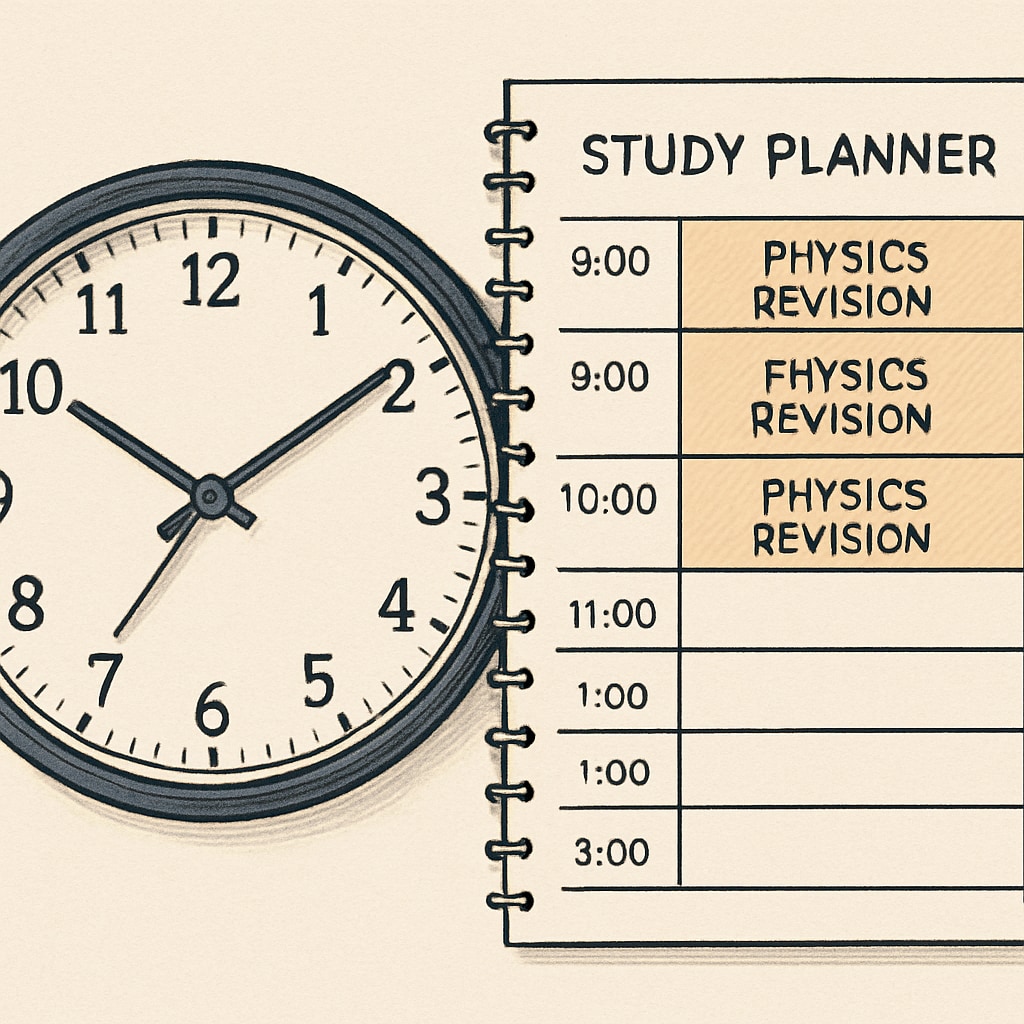For many students, tackling physics backlogs, time management, exam preparation under tight deadlines can feel overwhelming. Physics is a subject that demands both conceptual understanding and practical problem-solving. When faced with multiple backlogs, students often struggle to know where to begin. This article provides a structured approach to help students clear their physics backlogs efficiently, even with limited time.
Identify and Prioritize Your Physics Backlogs
The first step in clearing backlogs is to identify the areas where you struggle the most. This could include specific chapters, concepts, or types of problems. Prioritize these topics based on their importance in your syllabus and their weightage in exams.
- Analyze your syllabus: Divide the topics into “high priority,” “medium priority,” and “low priority” based on their importance.
- Pinpoint weaknesses: Focus on the topics where your understanding is weakest or where you’ve previously scored poorly.
- Create a timeline: Allocate time slots for each topic, ensuring high-priority areas get more attention.
For example, if mechanics has a higher weightage than optics in your upcoming exam, dedicate more time to mastering its concepts. By structuring your revision in this way, you can address the most critical gaps first.

Adopt Active Learning Techniques
Passive revision, such as rereading notes, is often ineffective for retaining physics concepts. Instead, opt for active learning techniques that engage your mind and deepen your understanding.
- Practice problem-solving: Focus on solving a variety of problems, starting with basic ones and gradually moving to advanced levels.
- Use visualization tools: Create diagrams, graphs, or concept maps to simplify complex ideas.
- Teach what you learn: Explaining concepts to a peer or even to yourself reinforces your understanding.
For example, while studying kinematics, use free-body diagrams to visualize forces or acceleration. This method not only makes the subject more tangible but also helps in tackling application-based questions more effectively.
Efficient Time Management Strategies
Time management is crucial when dealing with physics backlogs. With only limited hours available, students need to make the most of their study sessions. Here are some effective strategies:
- Adopt the Pomodoro Technique: Study for 25 minutes, followed by a 5-minute break. This approach helps maintain focus and prevents burnout.
- Set daily goals: Break your study plan into smaller, achievable tasks for each day.
- Minimize distractions: Keep your study environment free from distractions like social media or loud noises.
Additionally, schedule your study sessions during your peak productivity hours. If you’re a morning person, tackle the toughest topics first thing in the morning. Conversely, night owls can reserve evening hours for intensive study.

Leverage Resources and Seek Help
Don’t hesitate to use external resources or seek help when needed. Physics backlogs can often be addressed more effectively with the right guidance and tools.
- Online platforms: Use websites like Khan Academy or Britannica’s physics section for tutorials and explanations.
- Group study: Collaborate with classmates to clarify doubts and learn from each other.
- Consult teachers: Reach out to your physics teacher for personalized advice on challenging topics.
By leveraging these resources, you can gain new perspectives and find solutions to problems that seemed insurmountable before.
Track Your Progress and Stay Motivated
Finally, monitor your progress regularly to ensure you’re on track. Use a checklist or tracker to mark completed topics, and celebrate small victories to stay motivated.
In addition, remind yourself of the ultimate goal—whether it’s acing your exams or gaining a deeper understanding of physics. Keeping this in mind can help you push through difficult moments and maintain a positive outlook.
With the right strategies, clearing physics backlogs, managing your time effectively, and preparing for exams can become achievable, even under tight deadlines. Start today, and take one step closer to mastering physics!


